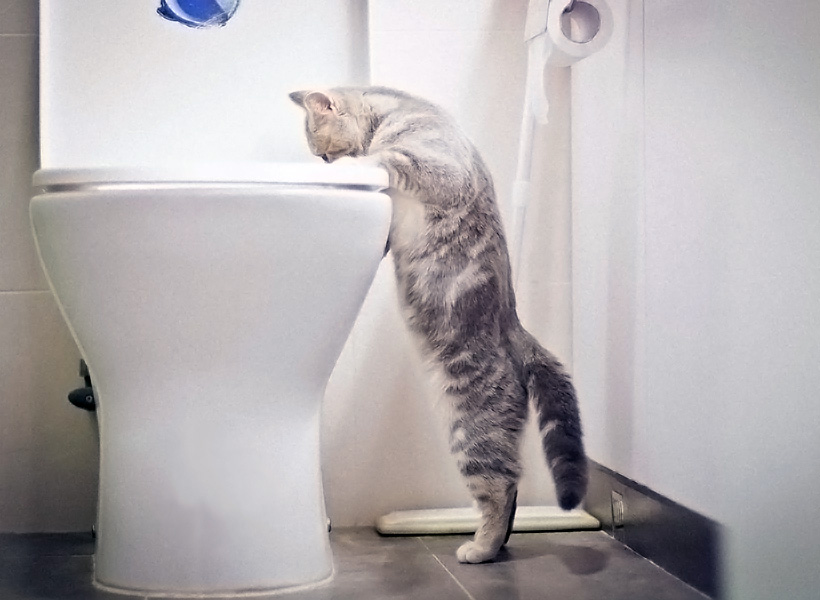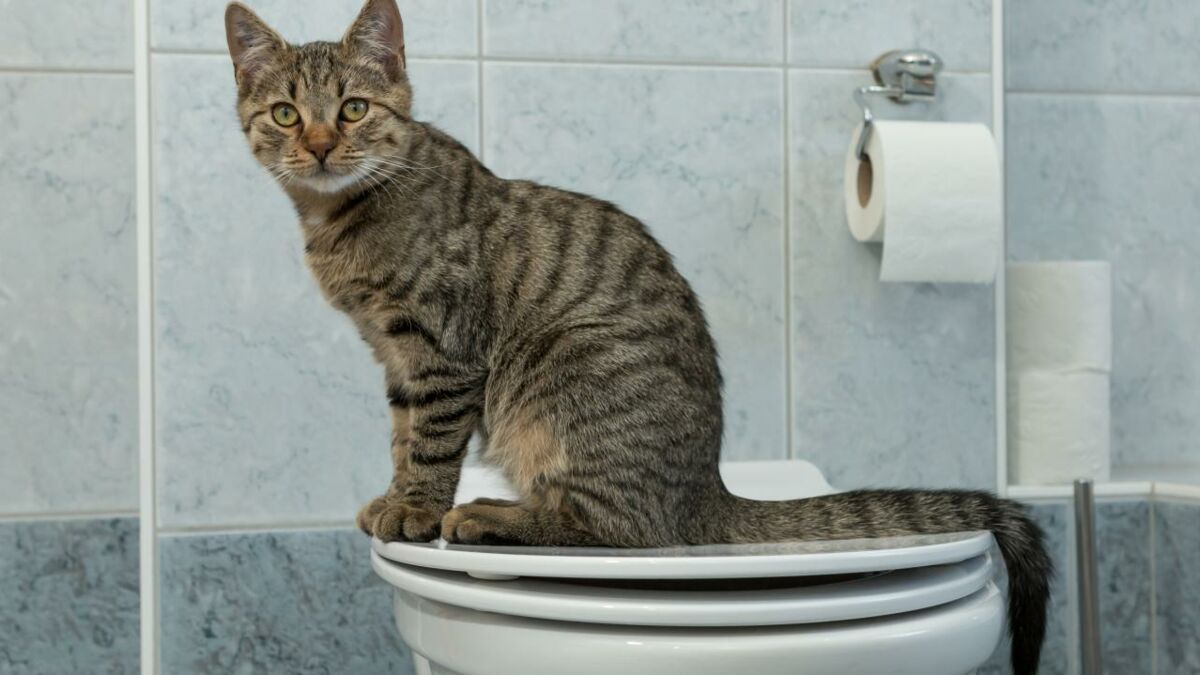Are you searching for facts and techniques about 10 Things You Should Never Flush Down The Toilet?

When it pertains to dealing with waste, especially animal waste, many people frequently consider the convenient option of flushing it down the bathroom. Nevertheless, this apparently very easy option can have severe repercussions for the setting and public health. In this post, we'll explore why flushing pet waste down the toilet is a negative idea and provide different approaches for appropriate disposal.
Introduction
Appropriate garbage disposal is important for maintaining environmental sustainability and public health. While it might seem safe to flush animal waste down the commode, it can cause different problems, both for the setting and human wellness.
Dangers of flushing pet waste
Ecological impact
Flushing animal waste introduces unsafe microorganisms and virus into rivers, which can negatively influence aquatic communities. These pathogens can contaminate water sources and damage marine life, disrupting delicate ecological communities.
Public health issues
Animal waste includes hazardous microorganisms such as E. coli and Salmonella, which can posture severe health and wellness risks to humans. Purging animal waste down the toilet can infect water supplies, causing the spread of illness and infections.
Alternatives to flushing
As opposed to flushing animal waste down the commode, there are numerous alternative disposal techniques that are much more eco-friendly and hygienic.
Composting
Composting animal waste is a green method to get rid of it. By composting, raw material is broken down right into nutrient-rich dirt, which can be made use of to fertilize yards and plants.
Landfill disposal
Disposing of pet waste in a land fill is one more alternative. While not as eco-friendly as composting, it is a more secure choice to flushing, as it avoids the contamination of water resources.
Pet dog garbage disposal systems
There are customized pet dog waste disposal systems readily available that safely and hygienically take care of animal waste. These systems commonly utilize enzymes to break down waste and remove smells.
Actions to correct pet garbage disposal
To ensure appropriate disposal of pet waste, comply with these steps:
Scooping and bagging waste
Consistently scoop and bag pet waste utilizing naturally degradable bags. This stops waste from contaminating the environment.
Utilizing assigned waste containers
Dispose of bagged animal waste in marked waste containers, such as garden compost containers or garbage dump containers. Avoid flushing it down the commode in any way prices.
Cleaning up litter boxes and animal areas regularly
Routinely tidy can and pet dog locations to stop the accumulation of waste and germs. Usage pet-safe cleansing items to preserve hygiene.
Advantages of correct disposal approaches
Embracing proper disposal approaches for pet waste offers several advantages:
Reduced environmental pollution
Appropriate disposal techniques decrease the danger of environmental pollution, safeguarding rivers and ecological communities from contamination
Decreased threat of water contamination.
By staying clear of flushing animal waste down the toilet, the threat of water contamination is significantly reduced, guarding public health.
Improved hygiene and health
Appropriate disposal methods promote far better hygiene and hygiene, creating a more secure setting for both human beings and animals.
Verdict
In conclusion, flushing animal waste down the toilet is unsafe to the setting and public health. By embracing alternate disposal approaches and complying with appropriate waste administration techniques, we can reduce the unfavorable influence of pet waste and contribute to a cleaner, much healthier earth.
What To Do With Dog Poo – The Do's And Don'ts Of Disposing Of Faeces
Dog poo bins
Some councils provide dedicated dog waste bins in popular dog-walking areas that can take dog poo that has been bagged but you can legally dispose of dog waste in any public litter bin, as long as it is securely bagged. This also applies to your wheelie bin at home.
Do not flush
Water companies do not recommend flushing dog faeces down the toilet because certain parasites can survive the water processing treatment and are potentially harmful to humans. You should also never consider flushing dog poo that has been bagged down the toilet as the bags will not break down and instead create severe blockages in the sewage system.
In the woods
The Forestry Commission promotes a ‘stick and flick’ method for dealing with waste in the woods. This means finding a stick and using it to flick any poo from off the path so that it is out of the way of other walkers. You could also bury it as long as it is not in an area where there might be livestock.
Livestock
Parasites found in dog poo can be transmitted to livestock if they inadvertently eat infected faeces that has been left on grazing land. This could result in the death of sheep or abortion in cattle so you should always make sure you pick up your dog’s waste in fields where livestock could be present.

Routinely tidy can and pet dog locations to stop the accumulation of waste and germs. Usage pet-safe cleansing items to preserve hygiene.
Advantages of correct disposal approaches
Embracing proper disposal approaches for pet waste offers several advantages:
Reduced environmental pollution
Appropriate disposal techniques decrease the danger of environmental pollution, safeguarding rivers and ecological communities from contamination
Decreased threat of water contamination.
By staying clear of flushing animal waste down the toilet, the threat of water contamination is significantly reduced, guarding public health.
Improved hygiene and health
Appropriate disposal methods promote far better hygiene and hygiene, creating a more secure setting for both human beings and animals.
Verdict
In conclusion, flushing animal waste down the toilet is unsafe to the setting and public health. By embracing alternate disposal approaches and complying with appropriate waste administration techniques, we can reduce the unfavorable influence of pet waste and contribute to a cleaner, much healthier earth.
What To Do With Dog Poo – The Do's And Don'ts Of Disposing Of Faeces
Dog poo bins
Some councils provide dedicated dog waste bins in popular dog-walking areas that can take dog poo that has been bagged but you can legally dispose of dog waste in any public litter bin, as long as it is securely bagged. This also applies to your wheelie bin at home.
Do not flush
Water companies do not recommend flushing dog faeces down the toilet because certain parasites can survive the water processing treatment and are potentially harmful to humans. You should also never consider flushing dog poo that has been bagged down the toilet as the bags will not break down and instead create severe blockages in the sewage system.
In the woods
The Forestry Commission promotes a ‘stick and flick’ method for dealing with waste in the woods. This means finding a stick and using it to flick any poo from off the path so that it is out of the way of other walkers. You could also bury it as long as it is not in an area where there might be livestock.
Livestock
Parasites found in dog poo can be transmitted to livestock if they inadvertently eat infected faeces that has been left on grazing land. This could result in the death of sheep or abortion in cattle so you should always make sure you pick up your dog’s waste in fields where livestock could be present.

I am just very taken with and I'm hoping you liked the entry. Are you aware of another individual who is fascinated by the topic? Feel free to share it. Thanks a lot for going through it.
Call